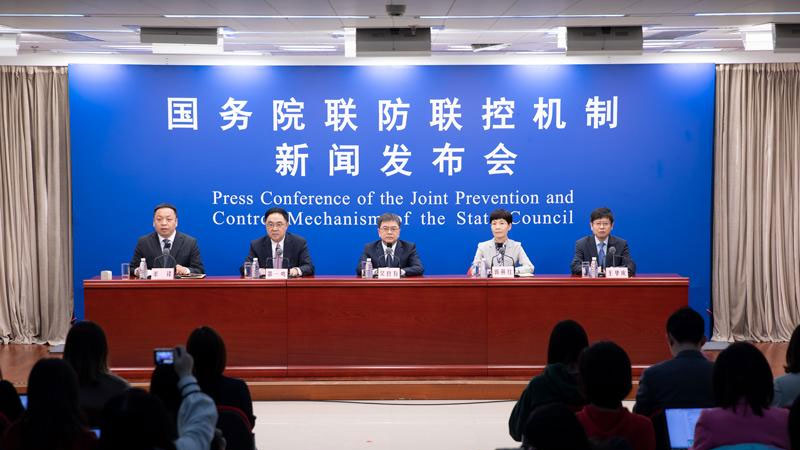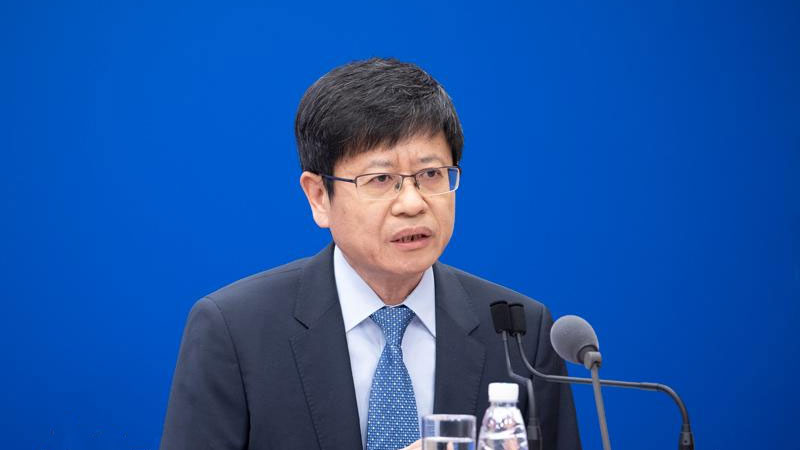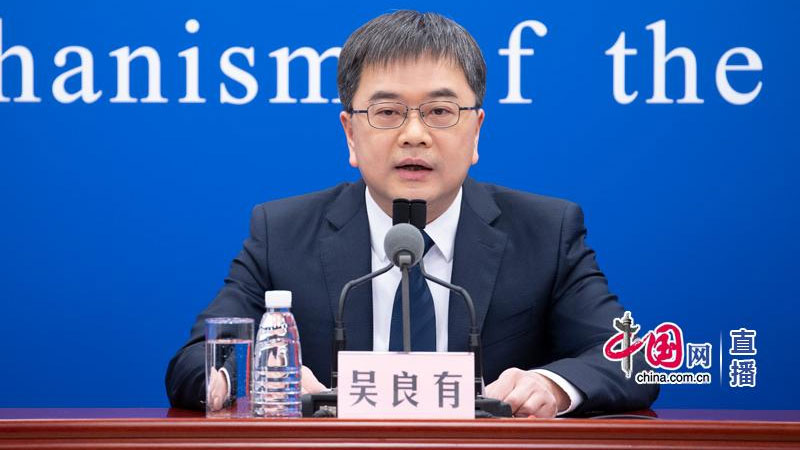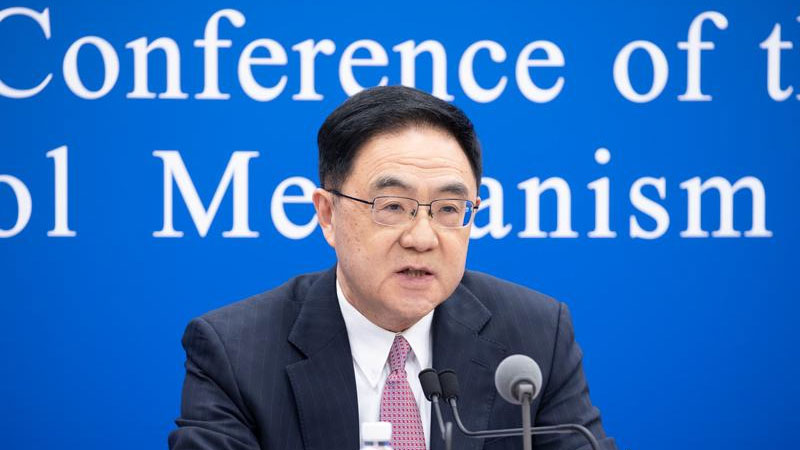
The Joint Prevention and Control Mechanism of the State Council holds a press conference to explain sequential immunization and other COVID-19-related information in Beijing, China, February 19, 2022. /China.com.cn
The Joint Prevention and Control Mechanism of the State Council holds a press conference to explain sequential immunization and other COVID-19-related information in Beijing, China, February 19, 2022. /China.com.cn
China has recently adopted a new anti-COVID method called "sequential immunization," which means mixing different types of vaccines, to boost people's immune system against the novel coronavirus that caused the pandemic.
"This method has caught much attention recently," said Wang Huaqing, chief immunologist at the Chinese Center for Disease Control and Prevention (CDC), during a regular press conference in Beijing on Saturday. "We decided to do this based on scientific proof."

Wang Huaqing explains sequential immunization during the press conference in Beijing, China, February 19, 2022. /China.com.cn
Wang Huaqing explains sequential immunization during the press conference in Beijing, China, February 19, 2022. /China.com.cn
Vaccine types are different from brands. Pfizer-BioNTech and Moderna vaccines belong to the same type called mRNA. So, mixing vaccines from the two brands doesn't count as sequential immunization.
Popular jabs in China, like those made by Sinopharm and Sinovac, are inactivated vaccines.
There are also viral vector vaccines produced by CanSino and J&J.
Sequential immunization is nothing new in vaccination. But using it against COVID-19 is new in China.
To use the new method, one must meet four criteria, Wang said. "First the person must be at least 18 years old."
"Second, the person must have already taken two shots of inactivated vaccines made by Sinovac, Sinopharm Beijing or Sinopharm Wuhan."
The third requirement is that the new booster shot must be taken six months after the second shot.
The last is that the person should not have taken any booster shots.
Omicron serious for seniors
In addition to introducing the new method, officials also explained the vaccination progress for senior people in China.
"More than 210 million people above 60 years old have been fully vaccinated," said Wu Liangyou, deputy head of the National Health Commission's (NHC) Disease Control and Prevention Division. "Among them, nearly 18 million are above 80 years old."
"Like I've said before, senior people can develop critical COVID-19 illness more easily than other age groups," Wu added. "But their vaccination rate is still lower than others."

Wu Liangyou explains vaccination among senior people in China at a press conference, February 19, 2022. /China.com.cn
Wu Liangyou explains vaccination among senior people in China at a press conference, February 19, 2022. /China.com.cn
The spread of the Omicron variant in China was also explained at the presser.
"Real world study showed that the Chinese vaccines can significantly reduce the chance of critical illness caused by Omicron," said Shao Yiming, chief expert at the CDC. "But China has still launched the development of new vaccines targeting the new variant, just in case."

Shao Yiming explains the Omicron situation in China at a press conference. /China.com.cn
Shao Yiming explains the Omicron situation in China at a press conference. /China.com.cn
"I assure you that our country is able to mass produce new kinds of vaccines even if the virus goes on mutating," Shao added.

